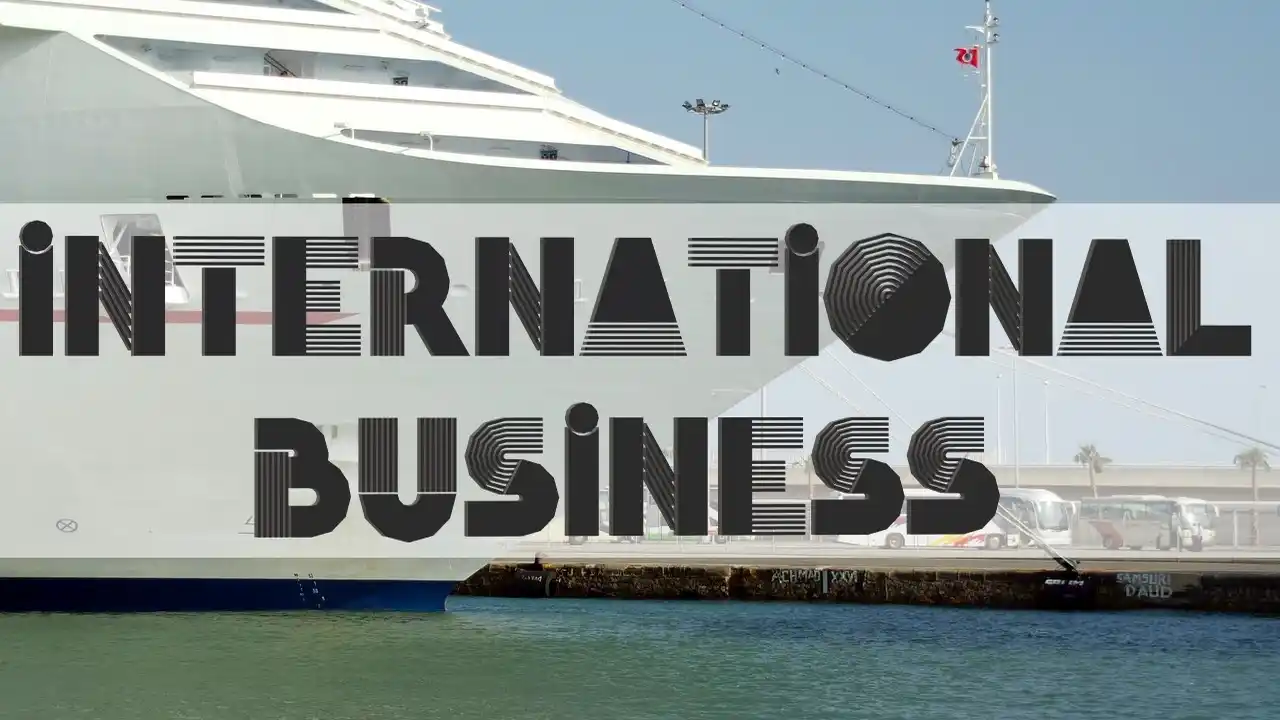In addition to advances in technology, infrastructure, and communication, the activities of the World Trade Organization (WTO) and reforms implemented by various governments have had a significant impact on the expansion of economic exchanges between nations. To learn more, take a look at these nature of international business environment.
It encompasses the international movement of goods and services as well as capital, labor, technology, and intellectual property such as patents, trademarks, know-how, and copyrights.When you hear the phrase “international business,” you think of business transactions that take place outside the borders of a single nation.
Top 12 – Nature of International Business Environment
Additionally, there is trade in intellectual property rights as well as export and import of services. The business and licensing procedures. There are two categories of foreign investments: direct investments and investments made through a portfolio. International commerce consists solely of the export and import of goods, also known as merchandise.
It is also known as commerce that is accessible to the general public. Electrical goods, gold, silver, and machines are among the items that can be touched. The nature of international business environment will be covered in-depth in this article, along with some examples for your convenience. To expand your understanding of risk of international business, read beyond what is apparent.
Culture
Because there are so many distinct cultures, it is essential for a business to research the culture of a foreign country before conducting business there. When you lack sufficient knowledge of a country’s preferences, customs, and norms, you may make poor decisions. Numerous businesses in the United States modify their products to meet the demands of various cultures.
McDonald’s does not sell regular hamburgers prepared with meat in India, for example. They instead market veggie burgers.Since Chinese consumers dislike cheese, PepsiCo, which owns Frito Lay, sells cheeseless Cheetos in China. To accommodate Korean consumers, the company has also developed a chip with a shrimp flavor.
Brewers in Saudi Arabia produce alcohol-free beer for consumption due to the prohibition on alcohol. Wal-Mart continues to learn from what it has done in various locations. When it first opened stores in Argentina, the layout was identical to that of the United States.
It soon discovered, however, that people in Argentina preferred a different method of shopping, so it altered the layout of its stores. Even though the majority of vendors spoke Spanish, all meetings were conducted in English. Wal-Mart’s expansion into Mexico was aided by its acquisition of a large Mexican retail company, which it used to learn about the local culture.
Economic Integration
International commerce interconnects the economies of numerous nations. Businesses benefit from the financial resources, labor force, resources, and infrastructure of the nations in which they operate. They manufacture the components in different countries, assemble the product in different countries, and sell their products in different nations.
The Economic System
If a company wishes to conduct business in a particular nation, it must first determine its economic structure. A useful indicator of a country’s economic system is the extent to which the government owns and participates in business.
A company situated in the United States will typically seek out countries with minimal government interference. The majority of governments worldwide categorize their rules on business ownership as either capitalism, communism, or socialism.
Currency Exchange Rates
Typically, each country generates its own revenue. The dollar is the currency of the United States, the pound sterling is the currency of the United Kingdom, and the Canadian dollar and the yen are the currencies of Canada and Japan, respectively. Twelve European nations have recently adopted the euro (€) as their primary currency.
Depending on the value of the U.S. dollar, the value of one coin relative to another varies over time. Due to this, the quantity of money a U.S. company must pay to import goods from abroad can fluctuate, even if the price charged by the foreign supplier remains unchanged. When the value of the dollar decreases, the value of other currencies increases.
This means that American businesses require more dollars to purchase the same quantity of foreign-made products. Changes in the value of the US dollar relative to other currencies can also influence the desire of foreign consumers to purchase American-made goods. This is because fluctuations in exchange rates impact the costs incurred by these customers. (even if the price in dollars remains unchanged). This is the nature of international business environment.
Developed Countries Predominate
Industrialized nations and multinational corporations govern the business world. Countries such as the United States, Europe, and Japan are examples of nations that produce high-quality goods and pay employees a living wage.
They have an abundance of resources, including research and development centers and cutting-edge technologies. So that they can offer high-quality goods and services at competitive prices. They assist them break into international markets.
Benefits for Participating Countries
This is beneficial for the nature of international business environment enterprises in these countries. Richer or more developed nations assist their businesses in expanding so they can compete on a global platform, where they may earn the most money.
Emerging nations have access to cutting-edge technology, foreign capital, employment opportunities, accelerated industrial growth, and other advantages. This is extremely beneficial for developing nations because it helps them expand their economies. This allows foreign investors easier access to the economies of developing nations.
Restriction on International Travel
In the world of international trade, there is a healthy quantity of concern regarding the restrictions imposed by foreign governments. Multiple governments prohibit multinational corporations from conducting business there. They employ trade blocs, tariffs, restrictions on foreign currency, etc. to halt trade. The global business community is harmed by these factors.
Regulations and Political Risk
When deciding whether or not to establish a branch in a particular country, a business must consider factors beyond the economy. Additionally, it must consider the political climate and regulations of the country. Political risk is the possibility that a country’s political actions will harm a company.
Several nations in Eastern Europe, Latin America, and the Middle East have made headlines due to political issues. Companies headquartered in the United States must adhere to the regulations and laws of the countries in which they conduct business.
Another risk for businesses is that when two governments are engaged in a political conflict, people may dislike the company because it is headquartered in a location where the two governments are at odds.
During the Iraq War in 2003, some U.S.-based multinational corporations temporarily ceased operations in certain countries due to anti-American demonstrations in the Middle East and elsewhere. As a result of the protests, there was a significant decline in demand for products manufactured by certain U.S.-based companies.
Segmentation of the Market
In international business, market segmentation is the process of categorizing consumers based on their location. The market has been subdivided into a number of subcategories and subgroups due to the fact that consumers from various countries desire different products. It accomplishes this by producing goods that satisfy the needs of customers in the various market segments it services.
Economic Situation
Before a company can determine how much demand there will be for its products in a foreign country, it must understand the local economy. The company’s overall performance is dependent on its sensitivity to conditions in the foreign country and the rate of economic expansion there.
Massive Operations
Because international business is conducted on such a large scale around the globe, it encompasses a variety of duties. They must produce a large quantity of these items to meet the requirements of people around the globe.
Furthermore, companies actively engage in extensive marketing campaigns to enhance product visibility and reach. First, they produce enough to satisfy domestic demand. When they have surplus, they sell it all over the globe.
Nature’s Sensitivity
Economic policy, the political climate, and technology have a substantial impact on international commerce. It could assist or hurt the business. It depends on the policies of the government, which can either help the business develop and make more money, or hinder its growth and cause it to lose money.
FAQ
Which of the Following Poses a Risk to the Environment?
Pollution, deforestation, climate change, ozone depletion, and water scarcity are all negative effects of human activity on the physical environment that have a global impact. Threats to the globe are the result of human actions.
How can Foreign Business Help Developing Countries?
It increases a company’s profits by making it simpler to sell products in countries with high total prices. It enables the company to make greater use of its surplus resources, thereby increasing its profitability. Additionally, it helps businesses enhance their future growth prospects.
What Exactly is the Foreign Legal Environment?
In the context of sustainable development, one of the most essential objectives of international environmental law is to limit population growth and reduce the consumption of natural resources. It is a component of public international law consisting of rules created by states to regulate disputes between nations.
Final Words
Even though there are numerous regulations governing international commerce through exporting and importing, this remains the most common method. The majority of a company’s initial international commerce consists of exports and imports. The company then frequently moves on to other forms of international business. To learn more, take a look at these nature of international business environment.






